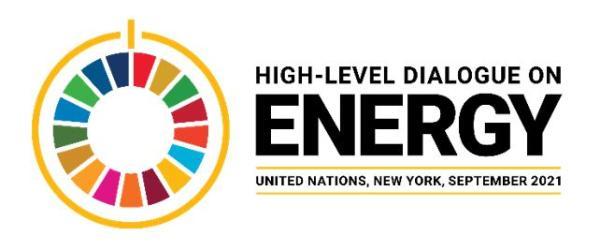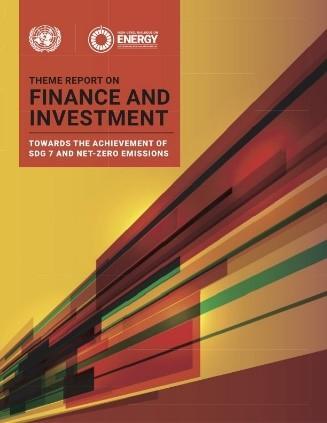
Everyone in the world could have access to clean, affordable energy within the next nine years if countries modestly increase investments, according to new reports released this week by the United Nations. Annual investments of around $35 billion could bring electricity access for 759 million people who currently lack it, and $25 billion a year can help 2.6 billion people gain access to clean cooking between now and 2030.
The proposed global roadmap outlines concrete actions to achieve clean, affordable energy for all by 2030 and net-zero emissions by 2050. Detailed recommendations on five priority themes were presented this week, during Ministerial-level Thematic Forums, which brought together key stakeholders virtually over five days, to mobilize actions as a major milestone on the road to the High-level Dialogue on Energy in September 2021.
The proposed roadmap, that will inform the High-level Dialogue on Energy in September and be considered in the political statement resulting from the summit, is based on reports submitted by five Technical Working Groups that have brought together over 160 experts since March, co-led by 16 UN and international organisations, grouped by thematic focus. The five focus areas are:
- energy access,
- energy transition,
- enabling the Sustainable Development Goals (SDGs) through inclusive, just energy transitions,
- innovation, technology and data, and
- finance and investment.
The European Investment Bank together with the International Energy Agency, International Finance Corporation and United Nations Economic Commission for Africa, co-leads the report on finance and investment.

Recommendations on financing and investment needed to achieve the 2030 and 2050 energy targets call for a tripling of clean energy investment to $5 trillion per year by 2030. The trillions of dollars in investments needed can be supported by scaling up the use of blended finance mechanisms and multilateral portfolio guarantees coupled with results-based financing, de-risking instruments and commercial financing, as well as reducing regulatory barriers to attract private investment.
The report sets out nine recommendations, which offer a way to scale up these financial flows. They correspond to four priority areas:
- Progress towards an inclusive and sustainable recovery and financial resource mobilization for developed and developing markets
- The alignment of finance flows with the Paris Agreement, SDG 7, and net-zero objectives
- Support of local financial markets and intermediaries in many countries, and public- and private sector collaboration
- Ensuring a robust pipeline of de-risked clean energy projects that can attract private capital
During the Ministerial-level Thematic Forum on 25 June, EIB President Werner Hoyer participated in the official launch of the report on finance and investment. He thanked EIB’s partners and laid out EIB’s climate and energy ambition.